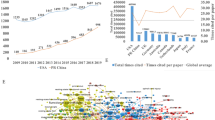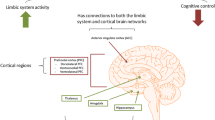Abstract
There is increasing evidence supporting the relationship between bipolar disorder (BP) and neurotrophin. The present study investigated the relationship between neurotrophic tyrosine kinase receptor type 2 (NTRK2) gene polymorphisms and bipolar I disorder (BP I) susceptibility and treatment response to mood stabilizers (lithium or valproate). Two-hundred eighty-four patients who met the DSM-IV criteria for BP I and 295 matched healthy controls were enrolled into this study. TaqMan® SNP genotyping assays were applied to genotype three NTRK2 gene polymorphisms (rs2769605, rs1565445, rs1387923). Our study showed a significant allelic association between NTRK2 gene polymorphism rs2769605 and treatment response to mood stabilizers in BP I patients (t = −2.53, P = 0.01). However, no significant association between NTRK2 gene polymorphisms and BP I susceptibility was observed after correcting for multiple comparisons. The results suggest that the NTRK2 gene polymorphism likely plays an essential role in treatment response to mood stabilizers in Han Chinese BP I patients.
Similar content being viewed by others
References
Bremer T, Diamond C, McKinney R et al (2007) The pharmacogenetics of lithium response depends upon clinical co-morbidity. Mol Diagn Ther 11:161–170
Dmitrzak-Weglarz M, Rybakowski JK, Suwalska A et al (2008) Association studies of the BDNF and the NTRK2 gene polymorphisms with prophylactic lithium response in bipolar patients. Pharmacogenomics 9:1595–1603
Dunham JS, Deakin JF, Miyajima F, Payton A, Toro CT (2009) Expression of hippocampal brain-derived neurotrophic factor and its receptors in Stanley consortium brains. J Psychiatr Res 43:1175–1184
Einat H, Manji HK (2006) Cellular plasticity cascades: genes-to-behavior pathways in animal models of bipolar disorder. Biol Psychiatry 59:1160–1171
Fan J, Sklar P (2008) Genetics of bipolar disorder: focus on BDNF Val66Met polymorphism. Novartis Found Symp 289:60–72
Farmer A, Elkin A, McGuffin P (2007) The genetics of bipolar affective disorder. Curr Opin Psychiatry 20:8–12
First MB, Spitzer RL, Gibbon M, Williams JBW (1997) Structured clinical interview for DSM-IV axis I disorders, patient version. American Psychiatric Press, Washington DC
Gao K, Calabrese JR (2005) Newer treatment studies for bipolar depression. Bipolar Disorders 7(suppl 5):13–23
Garnham J, Munro A, Slaney C et al (2007) Prophylactic treatment response in bipolar disorder: results of a naturalistic observation study. J Affect Disord 104:185–190
Grof P, Duffy A, Cavazzoni P et al (2002) Is response to prophylactic lithium a familial trait? J Clin Psychiatry 63:942–947
Hashimoto K, Shimizu E, Iyo M (2004) Critical role of brain-derived neurotrophic factor in mood disorders. Brain Res Brain Res Rev 45:104–114
Hayden EP, Nurnberger JI Jr (2006) Molecular genetics of bipolar disorder. Genes Brain Behav 5:85–95
Hosang GM, Uher R, Keers R et al (2010) Stressful life events and the brain-derived neurotrophic factor gene in bipolar disorder. J Affect Disord 125:345–349
Kremeyer B, Herzberg I, Garcia J et al (2006) Transmission distortion of BDNF variants to bipolar disorder type I patients from a South American population isolate. Am J Med Genet B Neuropsychiatr Genet 141B:435–439
Luberg K, Wong J, Weickert CS, Timmusk T (2010) Human TrkB gene: novel alternative transcripts, protein isoforms and expression pattern in the prefrontal cerebral cortex during postnatal development. J Neurochem 113:952–964
Murphy ML, Carballedo A, Fagan AJ et al (2012) Neurotrophic tyrosine kinase polymorphism impacts white matter connections in patients with major depressive disorder. Biol Psychiatry 72:663–670
Petryshen TL, Sabeti PC, Aldinger KA et al (2010) Population genetic study of the brain-derived neurotrophic factor (BDNF) gene. Mol Psychiatry 15:810–815
Rybakowski JK, Czerski P, Dmitrzak-Weglarz M et al (2012) Clinical and pathogenic aspects of candidate genes for lithium prophylactic efficacy. J Psychopharmacol 26:368–373
Shaltiel G, Chen G, Manji HK (2007) Neurotrophic signaling cascades in the pathophysiology and treatment of bipolar disorder. Curr Opin Pharmacol 7:22–26
Smith EN, Bloss CS, Badner JA et al (2009) Genome-wide association study of bipolar disorder in European American and African American individuals. Mol Psychiatry 14:755–763
Smoller JW, Finn CT (2003) Family, twin, and adoption studies of bipolar disorder. Am J Med Genet C Semin Med Genet 123C:48–58
Thompson Ray M, Weickert CS, Wyatt E, Webster MJ (2011) Decreased BDNF, trkB-TK + and GAD67 mRNA expression in the hippocampus of individuals with schizophrenia and mood disorders. J Psychiatry Neurosci 36:195–203
Vinberg M, Trajkovska V, Bennike B, Knorr U, Knudsen GM, Kessing LV (2009) The BDNF Val66Met polymorphism: relation to familiar risk of affective disorder, BDNF levels and salivary cortisol. Psychoneuroendocrinology 34:1380–1389
Xu J, Liu Y, Wang P et al (2010) Positive association between the brain-derived neurotrophic factor (BDNF) gene and bipolar disorder in the Han Chinese population. Am J Med Genet B Neuropsychiatr Genet 153B:275–279
Zandi PP, Judy JT (2010) The promise and reality of pharmacogenetics in psychiatry. Psychiatr Clin North Am 33:181–224
Zarate CA Jr, Singh J, Manji HK (2006) Cellular plasticity cascades: targets for the development of novel therapeutics for bipolar disorder. Biol Psychiatry 59:1006–1020
Acknowledgments
Funding for this study was provided by the National Natural Science Foundation of China (grant no. 30971047), Shanghai Jiaotong University School of Medicine Training Program for Excellent Doctoral Dissertation (grant no. YBPY2010010), Shanghai Key Medicine Specialties Program (grant no. ZK2012A12), Key Medicine Specialties Program of Hongkou District (grant no. Hongkou Health [2010]91) and Hongkou District Medicine Study Program (grant no. Hongkou Health 1101-02). Partial support was received from the “12th Five-year Plan” of the National Key Technologies R&D Program (2012BAI01B04) and the National Key Clinical Disciplines at Shanghai Mental Health Center (OMA-MH2011-873). The authors thank Joseph R. Calabrese from Case Western Reserve University School of Medicine and Martin Alda from Dalhousie University for the permission of using the scale “Retrospective Criteria of Long-Term Treatment Response in Research Subjects with Bipolar Disorders.” The authors also express their gratitude to Mrs. Mary Beth Serrano from Case Western Reserve University for grammatical assistance.
Author information
Authors and Affiliations
Corresponding authors
Rights and permissions
About this article
Cite this article
Wang, Z., Fan, J., Gao, K. et al. Neurotrophic Tyrosine Kinase Receptor Type 2 (NTRK2) Gene Associated with Treatment Response to Mood Stabilizers in Patients with Bipolar I Disorder. J Mol Neurosci 50, 305–310 (2013). https://doi.org/10.1007/s12031-013-9956-0
Received:
Accepted:
Published:
Issue Date:
DOI: https://doi.org/10.1007/s12031-013-9956-0




